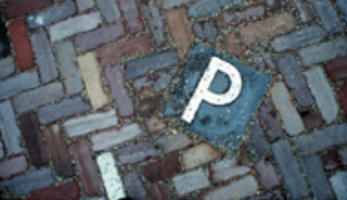Promoting the use of clean vehicles through an innovative parking policy
Summary
The city of Utrecht had the intention to lower emissions by charging 'dirty cars' (cars with high emissions) a higher parking tariff than clean cars.
Implementing sustainable mobility
The city of Utrecht aims to improve the air quality within the city and to achieve a modal shift towards cleaner vehicles. In order to achieve these objectives the city implements many measures. One of the many possible ways to improve the air quality is to increase the use of clean cars. This MIMOSA measure 'Stimulating the use of clean vehicles by innovative parking policy' was an example of this type of measure. Within this measure the city of Utrecht had the intention to differentiate the parking tariffs for cars according to their environmental characteristics: the fuel type. The idea was that the city could decrease the use of 'dirty' cars by charging 'dirty cars' (cars with high emissions) a higher parking tariff than clean cars.
Progress
To be able to differentiate the parking tariffs in this way, new national and municipal legislation was needed. Utrecht was one of the partners in a national pilot regarding this tariff differentiation but the former deputy mayor for Traffic and Transport had doubts concerning the effectiveness of the measure. Therefore Utrecht decided to leave the pilot. After the local elections in spring 2010, the new Deputy Mayor of Utrecht decided to pursue this measure. The national Ministry agreed and granted Utrecht permission to again join the pilot. However, the pilot still awaited formal approval by the (new) national government and senate. October 2010 saw a change in national government and in the political "colour" of the responsible Minister.
Because of this, it became highly unlikely that the proposed national law that was required to start the pilot would be accepted. The Minister doubted that the law would have significant effect on air quality in cities and was very hesitant with regard to the privacy issues related to enforcement of the law. On the 18th of November 2011 the national government decided not to go ahead with the experimental legislation. Due to this decision the pilot was no longer possible and the measure was stopped.
Despite the withdrawal of the measure, a process evaluation was conducted and enabled the identification of the barriers and drivers encountered. The main barrier was political based on an assumed lack of technical efficiency as well as assumed social undesirable consequence resulting in a legislative barrier, which eventually resulted in the abandonment of the experimental law. On the other hand, politics were also a driver for this measure. After an initial abandonment at local level, following the municipal elections that took place in March 2010, the new deputy mayor (also responsible for mobility and transport) declared himself to be in favour of the measure (political driver). The city again requested permission from the ministry of environment (who coordinated the pilot for various Dutch cities with air quality problems) to join the envisaged pilot project on tariff differentiation based on environmental characteristics. The former environmental Minister agreed by then that Utrecht could rejoin. The following general elections, resulting in a change of national government, meant that the pilot awaited formal approval by the new national government and senate.
Outcomes
Differentiated parking tariffs based on environmental performance is clearly a politically sensitive measure. If a city decides to implement such a measure, it needs a strong, consistent political and legislative framework. Despite its apparent failure, the measure was important because it kept this vital subject on the political and societal agenda. Those in favour of this measure hope that it will have an opportunity again in the future.







